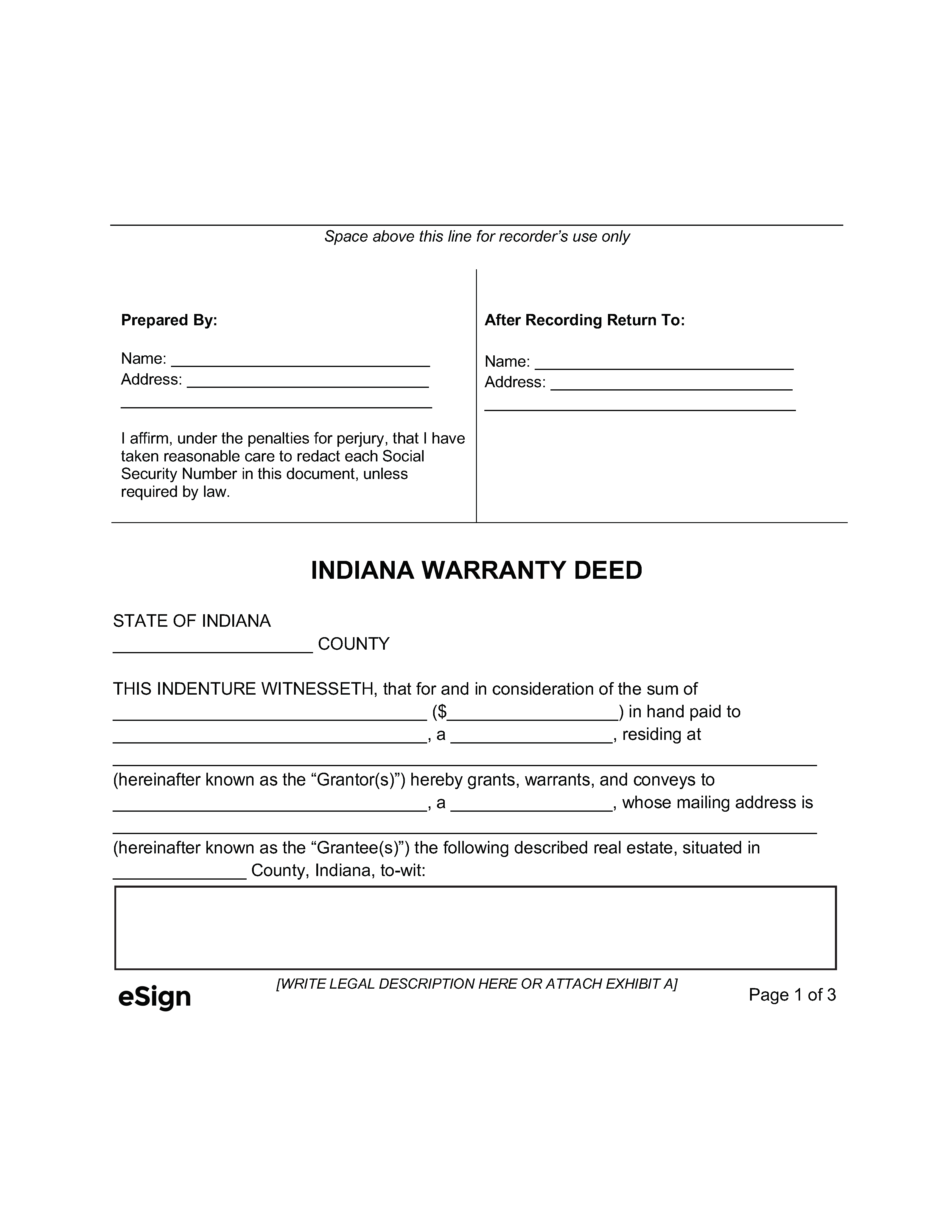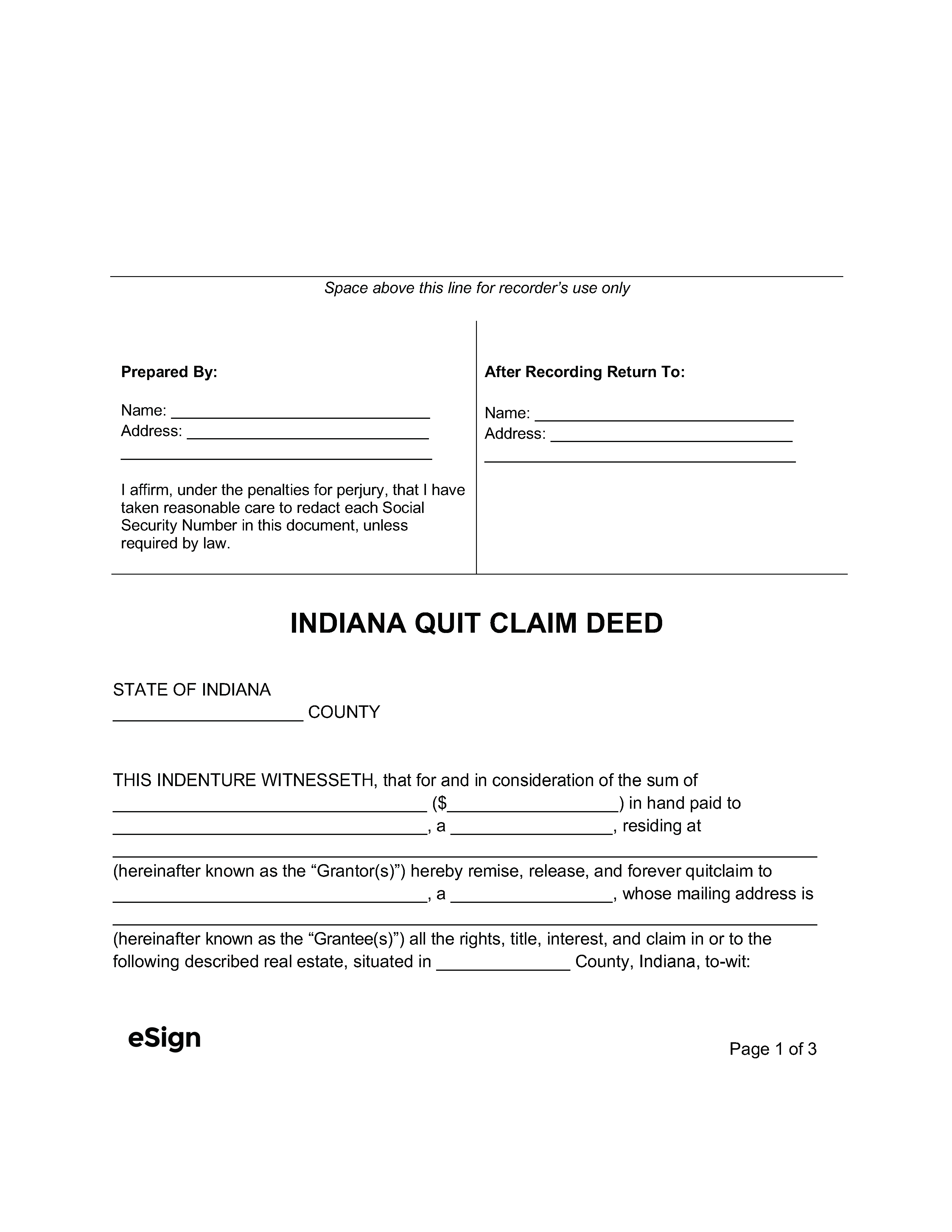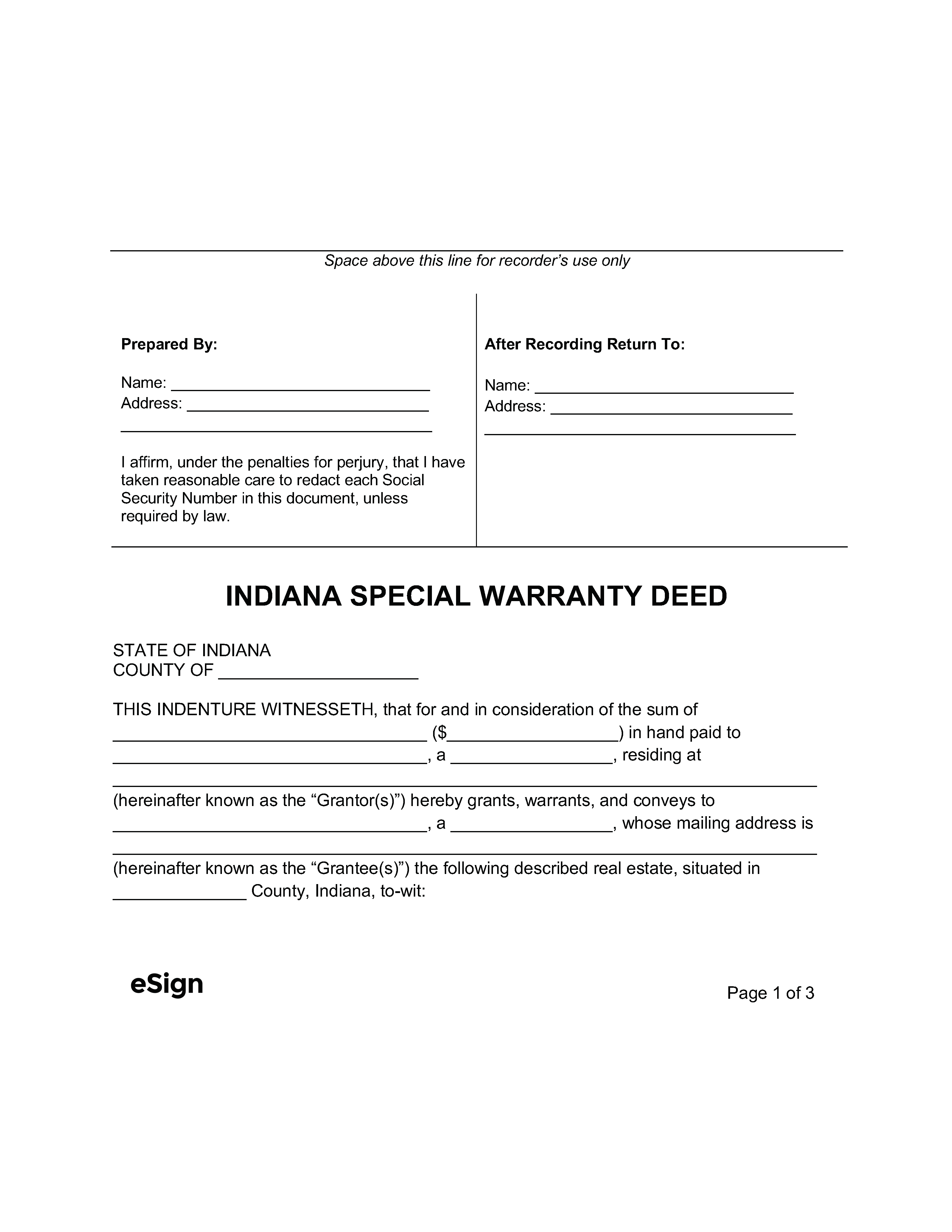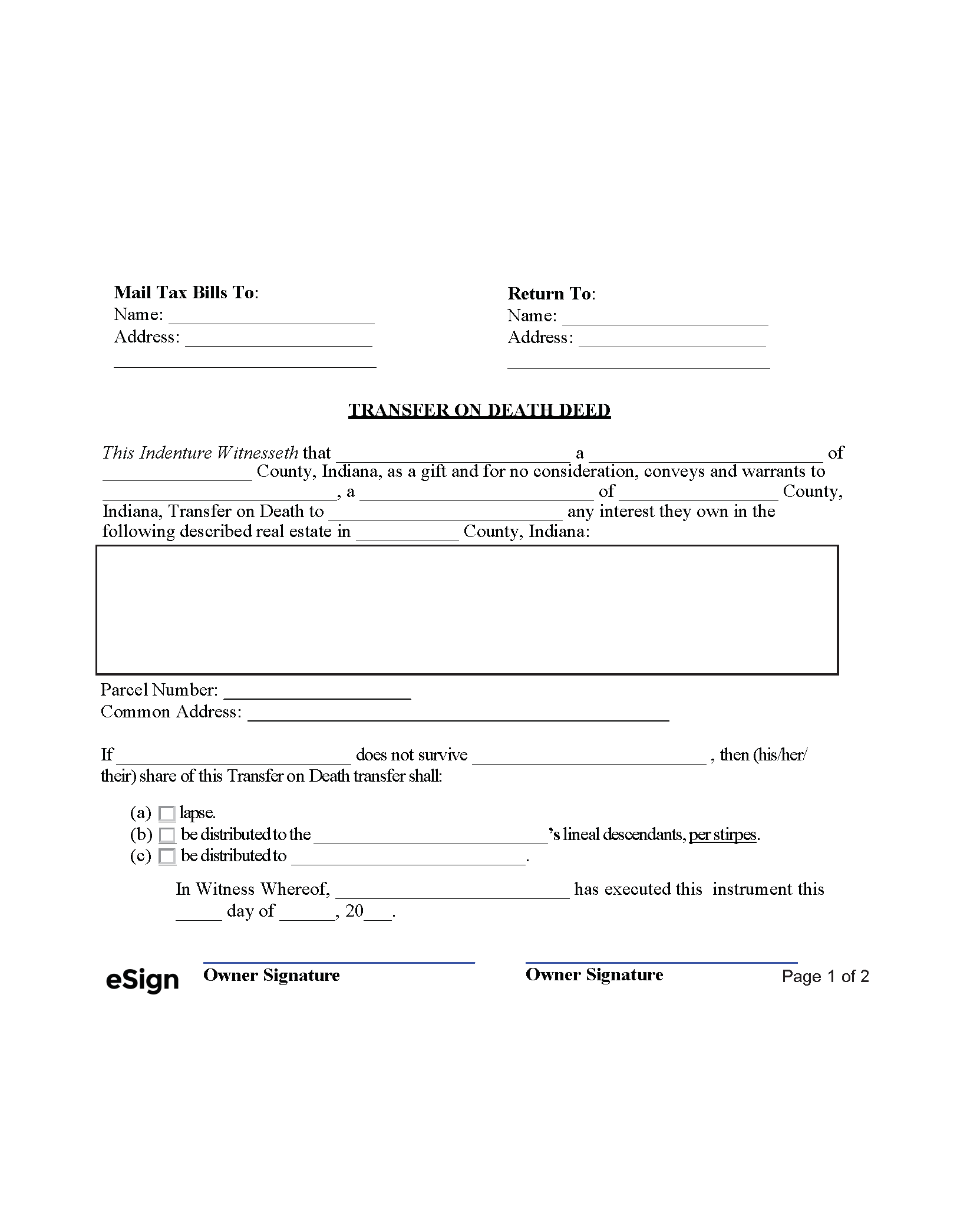By Type (4)
 General Warranty Deed – Provides the grantee with warranties that there are no defects or encumbrances on the property title. General Warranty Deed – Provides the grantee with warranties that there are no defects or encumbrances on the property title.
|
 Quit Claim Deed – Does not offer any assurance that the transferred real estate has a clear title. Quit Claim Deed – Does not offer any assurance that the transferred real estate has a clear title.
|
 Special Warranty Deed – Assures the grantee that there are no liens or encumbrances from the grantor’s ownership period. Special Warranty Deed – Assures the grantee that there are no liens or encumbrances from the grantor’s ownership period.
|
 Transfer on Death Deed – Designates a beneficiary to receive the grantor’s property in the event of their death. Transfer on Death Deed – Designates a beneficiary to receive the grantor’s property in the event of their death.
Download: PDF |
Formatting
Paper – White paper, minimum 20lb weight, no larger than 8.5″ x 14″
Margins – Top and bottom margins of at least 2″ on first and last pages. All other margins, at least 1/2″.
Font – Black ink, type-written, and at least 10pt.[1]
Recording
Signing Requirements – Deeds must be signed and acknowledged before a notary public or other qualifying officer.[2]
Where to Record – Once completed and signed, deeds must be recorded with the local County Recorder’s Office.[3]
Cost – $25 (as of this writing)[4]
